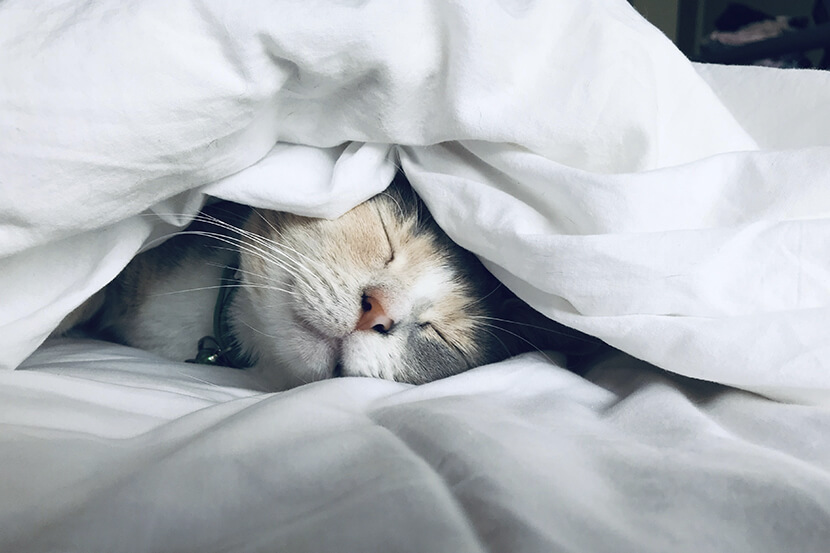
The science behind beauty sleep.
If you’ve ever woken up from a full night of restful sleep and noticed that your skin looked calm and glowing, you certainly weren’t imagining it. Magic happens during sleep. Well, it’s not magic per se, it’s more like science. During sleep, the body produces growth hormones, which helps repair skin and build body tissue. A good night of sleep helps skin recover from external stresses, improves blood flow, and even boosts collagen production, which helps skin look more plump and full. So try to aim for seven to nine hours of sleep per night on a regular basis.
Without a proper night of sleep, you’ll likely notice some negative effects when it comes to your appearance. Dry skin, dark circles, puffy eyes, and a dull complexion can all result from a poor night of sleep. In a 2014 study, researchers linked chronic low-quality sleep with an increase in weaker skin barrier function. Sleep-deprived skin has a harder time defending itself from free radicals and environmental stresses like sun and pollution, all of which contribute to skin deterioration.
The International Rosacea Foundation says that lack of sleep can even be a trigger for rosacea sufferers. When you don’t get a full night of rest, whether it be due to stress at work or some other interference, or when your sleep cycle is interrupted during the night, some people may notice an increase in rosacea symptoms like flushing or facial redness.
Body temperature drops during the night, which gives the sympathetic nervous system (you know it as the “fight or flight” response) a break. When resting, your SNS system has a chance to relax. As the body enters a sleeping state and SNS powers off, blood vessels relax which leads to diminished facial redness. More restful sleep gives skin a much-needed break.
It’s important to not only get enough sleep but to also enjoy high-quality sleep. That means no tossing and turning, no loud snorers nearby (get earplugs if you need to!), no disruptions during the night, no sleeping after heavy meals or midnight snacks, and no boozing before bed. And most importantly, try to put the cell phone down and turn the TV off well before bedtime! We’re all connected to our media and devices, but those couple of hours before bed should be sacred so you can truly wind down.
Before crawling into bed, you should try to slow down your brain waves by creating a relaxing routine. Preparing for bedtime with a routine is a good first step. Meditating, deep breathing, or even taking a warm bath are all great ways to settle your mind and body.
You may also find it relaxing to do a skincare regimen before bed. Treat yourself like you were at the spa. A gentle cleanse, relaxing facial mask, or luxurious skin treatment can help you feel calm and ready to settle in for the evening.
This is also a good time to consider which products you can use to boost the repairing process that happens as you sleep. A restorative night cream coupled with a good night of sleep can work wonders for your complexion. A mega-rich, moisturising cream will help ensure skin stays hydrated all night long. Full, plump, moisturised skin helps fine lines look less obvious, keeping your skin healthier, and more supple in appearance.
It’s not always easy to get a consistent, full night of sleep every single night of the week. Life happens. But if you are concerned about your skin, it’s important to prioritise quality rest as often as possible.
For more information on how you can care for your skin and product recommendations to match, visit our friends griffin+row.
Find more captivating articles on healthy self-care in Issue 8, Audrey Daybook – A Bookworm’s Feast.
Photo by Kinga Cichewicz on Unsplash




















